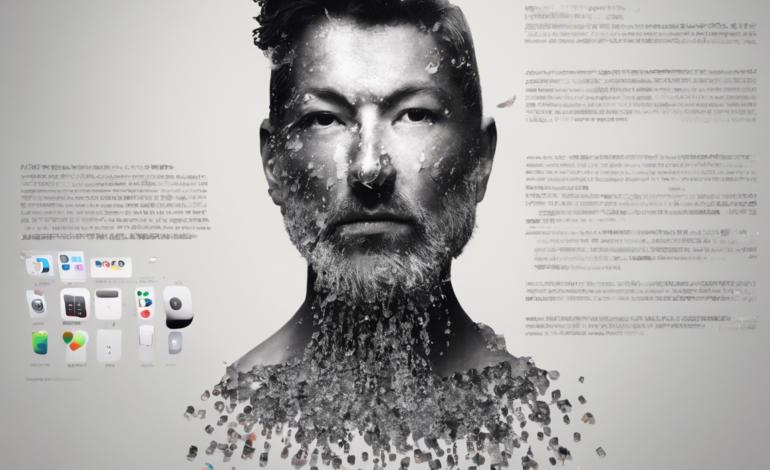
Decoding the Controversy Surrounding Camila Araujo Leak
In recent times, social media has been abuzz with discussions surrounding the controversial leak of intimate content allegedly involving Brazilian artist Camila Araujo. The situation has sparked debates around privacy, consent, and the ethical implications of such actions. As the incident continues to unfold, it is essential to delve deeper into the complexities of this issue and understand the broader implications it holds. In this comprehensive article, we aim to decode the controversy surrounding the Camila Araujo leak, shed light on the key aspects at play, and provide insights into the significance of this event in today’s digital age.
Understanding the Camila Araujo Leak
The Camila Araujo leak refers to the unauthorized dissemination of private and intimate content, including photos and videos, purportedly featuring Camila Araujo. The images and videos were shared across various online platforms without her consent, leading to a widespread dissemination of the material.
The Role of Consent in Intimate Content
Central to the controversy is the issue of consent. Consent is the cornerstone of any respectful and ethical interaction, particularly when it comes to intimate content. In this case, the leak of Camila Araujo’s private material raises serious questions about the boundaries of consent and the need for greater awareness of digital privacy rights.
Privacy Violations and Legal Ramifications
The unauthorized dissemination of intimate content constitutes a violation of privacy and can have severe legal repercussions. Individuals have the right to control the dissemination of their personal images and videos, and any infringement upon this right can lead to legal action against the perpetrators.
Impact on Individuals and Society
The leak of intimate content can have profound emotional and psychological effects on the individuals involved. It can lead to feelings of shame, embarrassment, and violation, causing long-term harm to the mental well-being of the affected individuals. Moreover, such incidents contribute to a culture of cyberbullying and online harassment, perpetuating a harmful environment on the internet.
Ethical Considerations in the Digital Age
The Camila Araujo leak underscores the pressing need for a deeper ethical reflection on our online behaviors and practices. In today’s digital age, where information spreads rapidly and boundaries between public and private spheres are blurred, it is crucial to uphold ethical standards and respect individuals’ rights to digital privacy.
Empowering Individuals Through Education
One way to address such incidents is through educational initiatives that raise awareness about digital privacy, consent, and online safety. By empowering individuals with the necessary knowledge and skills to navigate the digital landscape responsibly, we can work towards creating a safer and more respectful online community.
Holding Perpetrators Accountable
Furthermore, it is essential to hold perpetrators of privacy violations accountable for their actions. Legal measures, in conjunction with ethical considerations, can serve as a deterrent against such behaviors and send a clear message that privacy breaches will not be tolerated.
Building Support Systems
In the aftermath of a privacy breach, it is crucial to provide support to the individuals affected. Building strong support systems that offer emotional, legal, and psychological assistance can help in mitigating the impact of such traumatic events and aid in the recovery process.
Frequently Asked Questions (FAQs)
1. What are the legal implications of leaking intimate content without consent?
In many jurisdictions, the unauthorized dissemination of intimate content is considered a violation of privacy laws and can lead to legal consequences, including civil suits and criminal charges.
2. How can individuals protect themselves from privacy violations online?
Individuals can safeguard their privacy online by using strong passwords, enabling two-factor authentication, being cautious about sharing personal information, and refraining from engaging in risky online behaviors.
3. What role do social media platforms play in preventing privacy breaches?
Social media platforms have a responsibility to uphold community guidelines, enforce strict privacy policies, and take swift action against accounts or users involved in privacy violations.
4. How can victims of privacy breaches seek help and support?
Victims of privacy breaches can seek support from helplines, legal aid services, mental health professionals, and support groups specializing in cyber harassment and online privacy violations.
5. What can be done to raise awareness about digital privacy rights?
Educational campaigns, workshops, and outreach programs focused on digital privacy, consent, and online safety can help raise awareness and empower individuals to protect their privacy rights effectively.
In conclusion, the Camila Araujo leak serves as a stark reminder of the challenges we face in safeguarding digital privacy and upholding ethical standards in the online world. By understanding the complexities of this incident, promoting a culture of consent and respect, and advocating for stronger legal and ethical frameworks, we can strive towards a more secure and ethical digital landscape for all.
